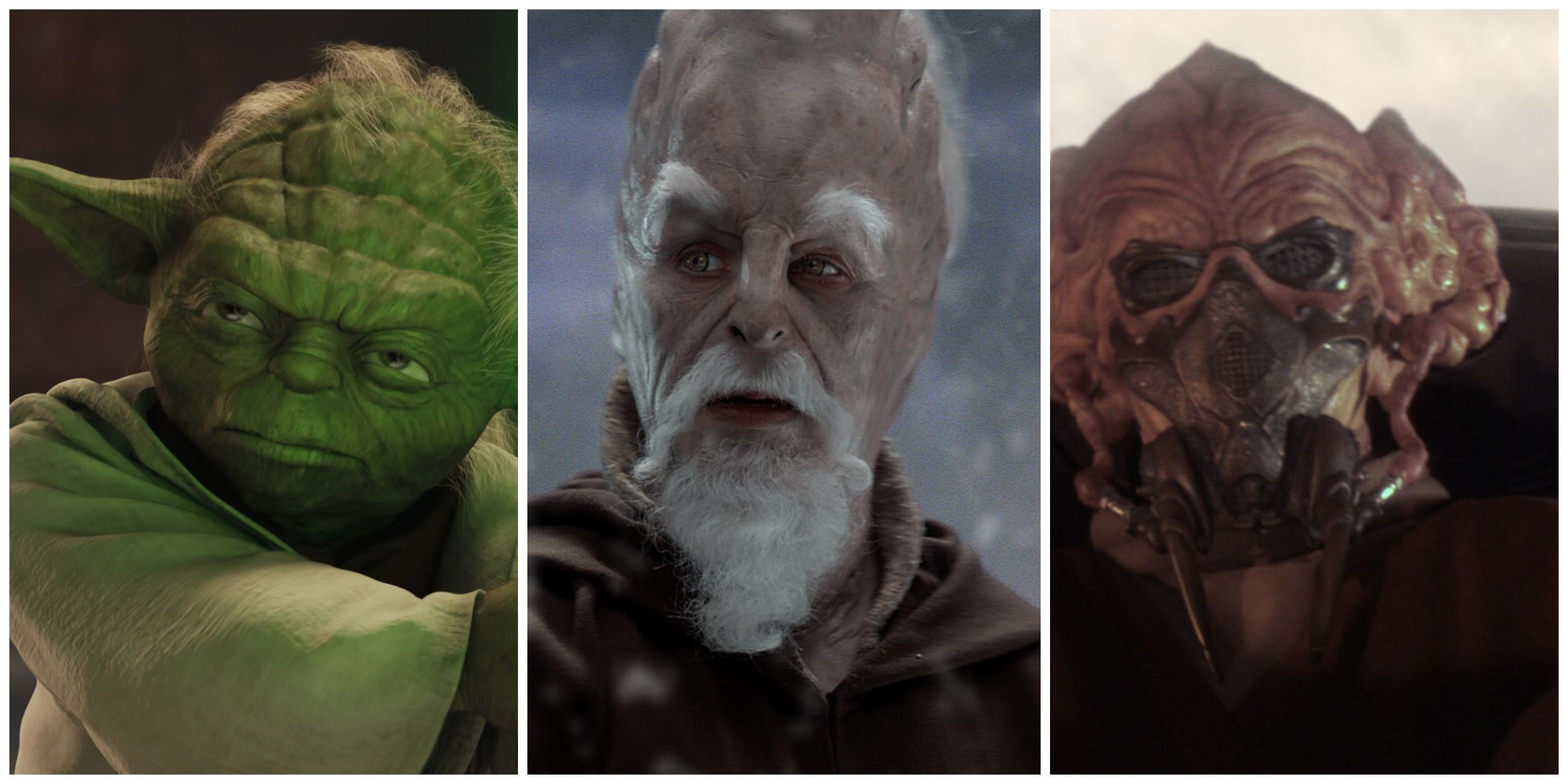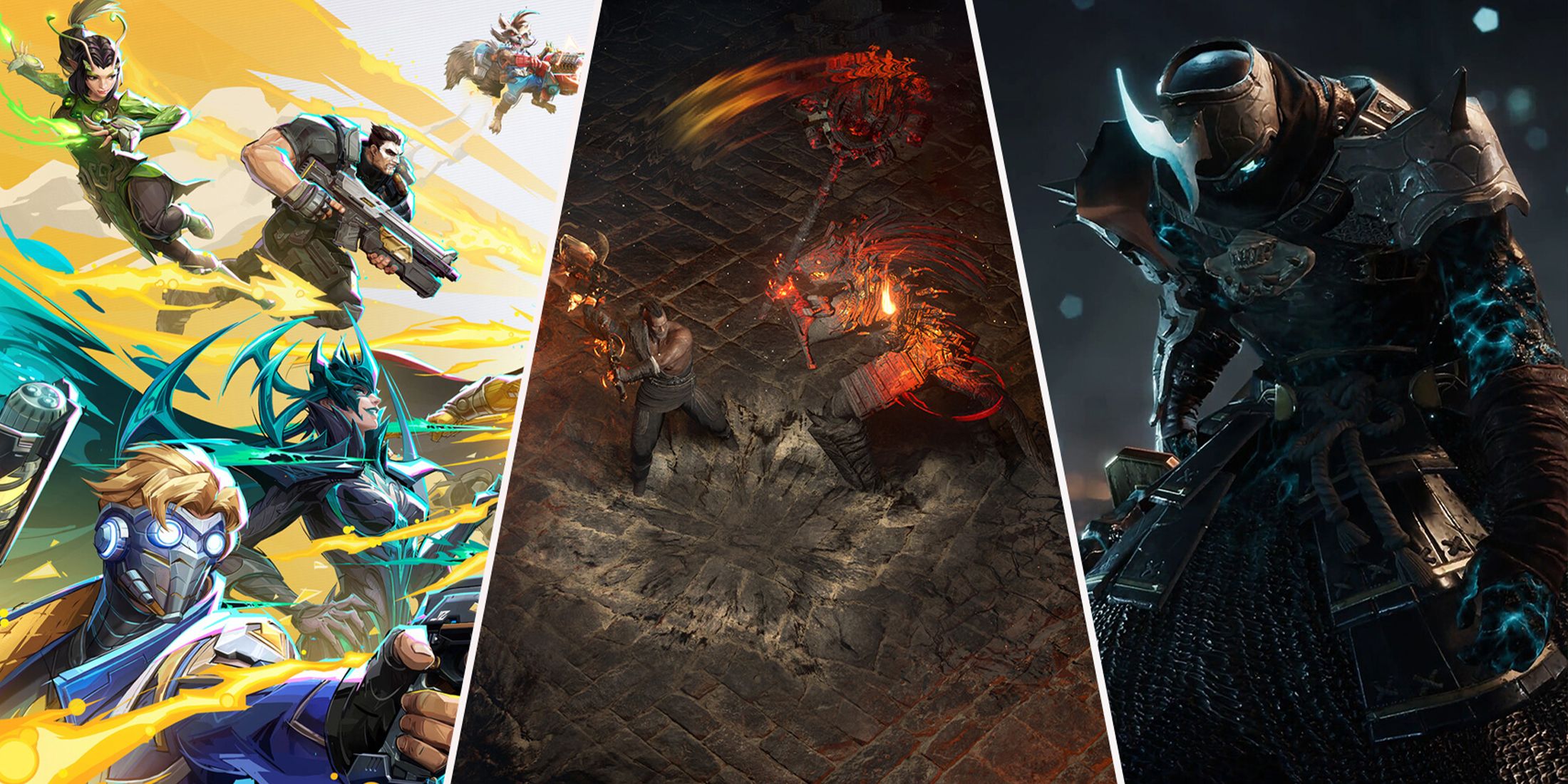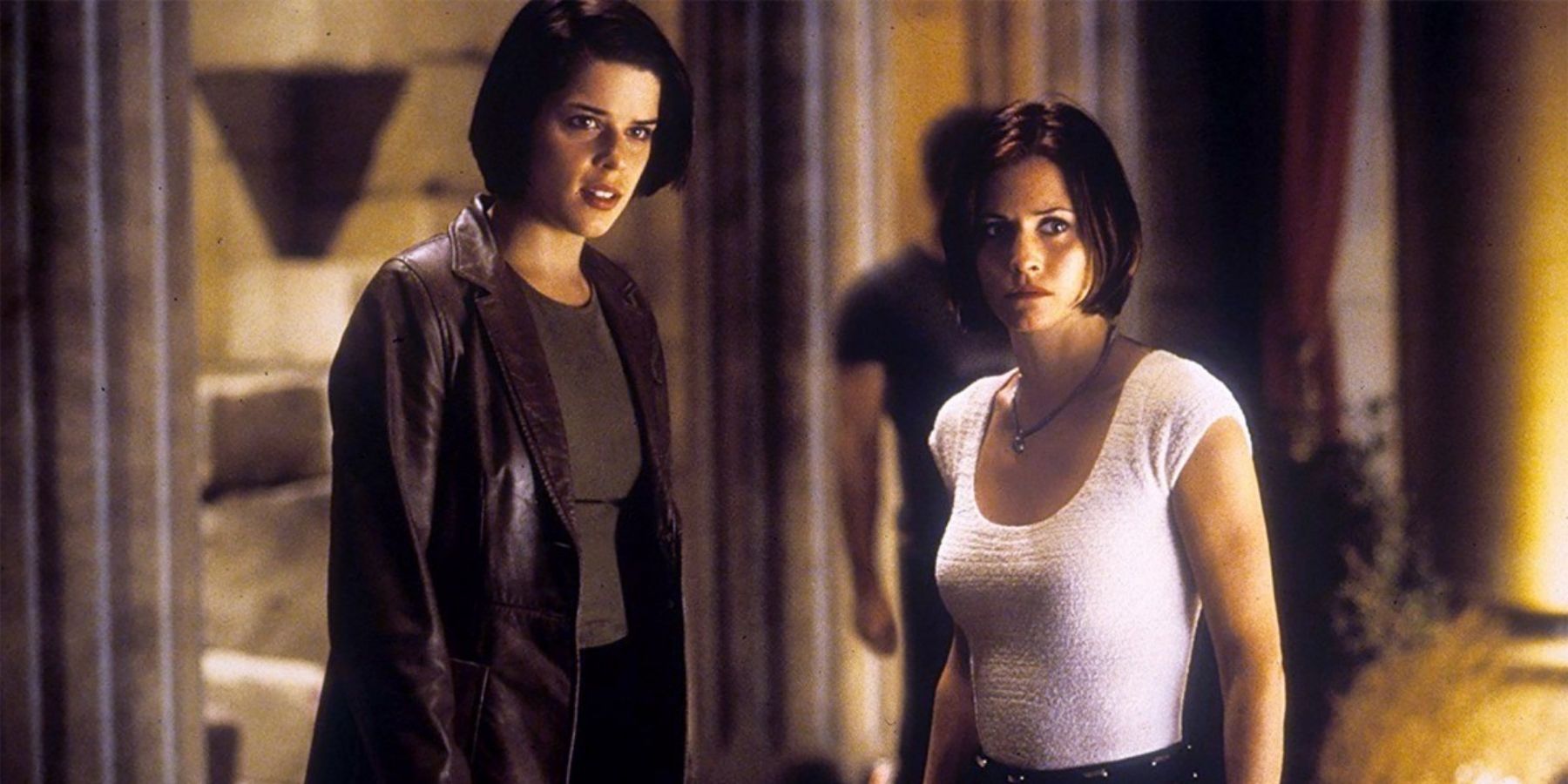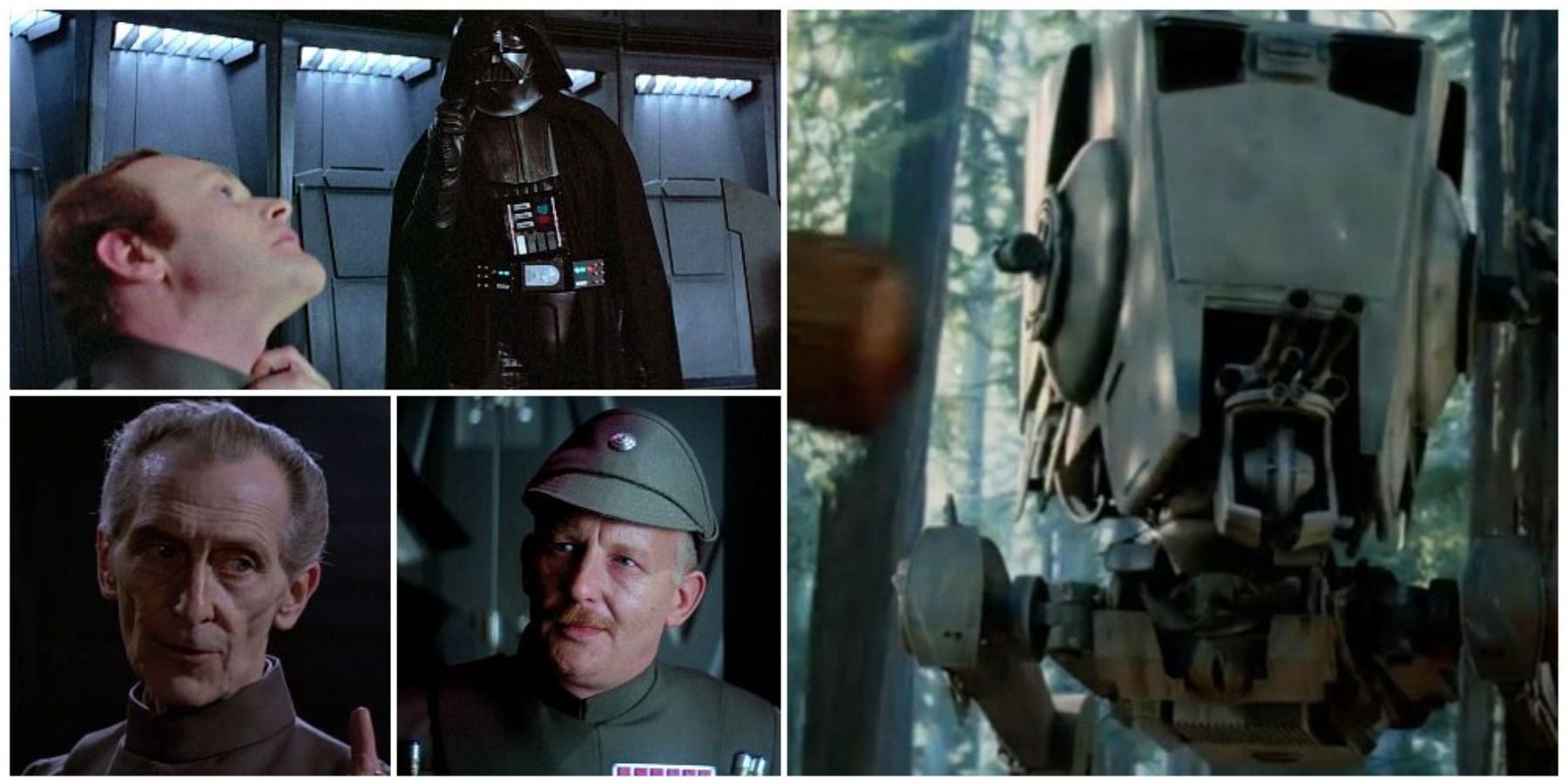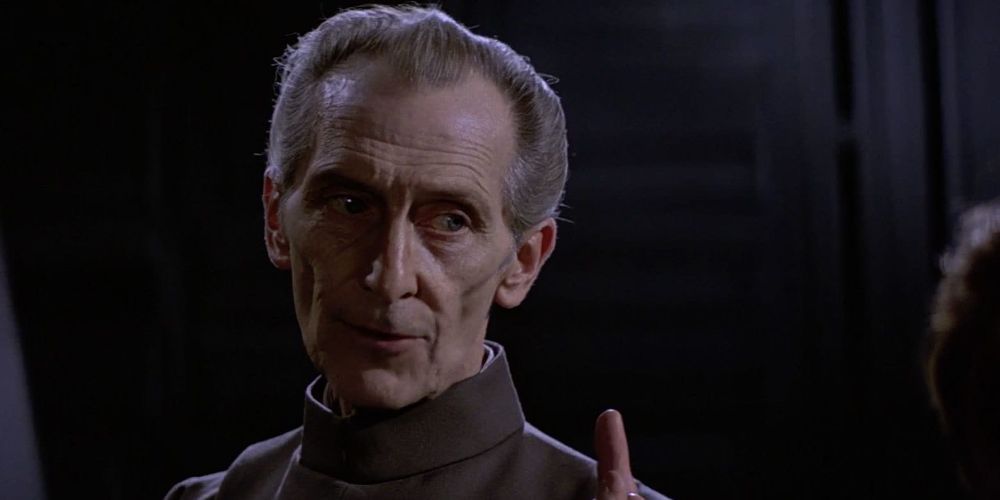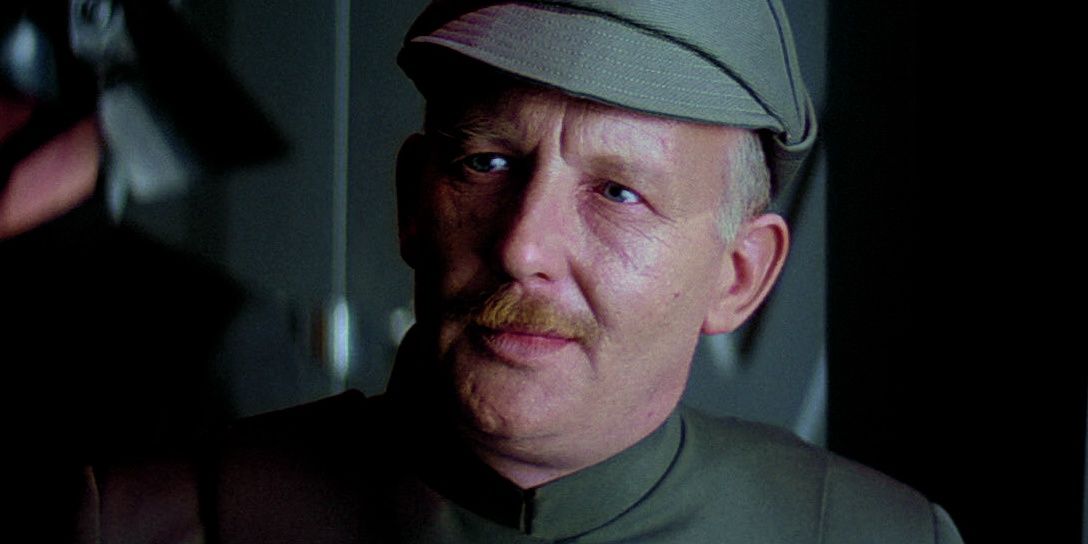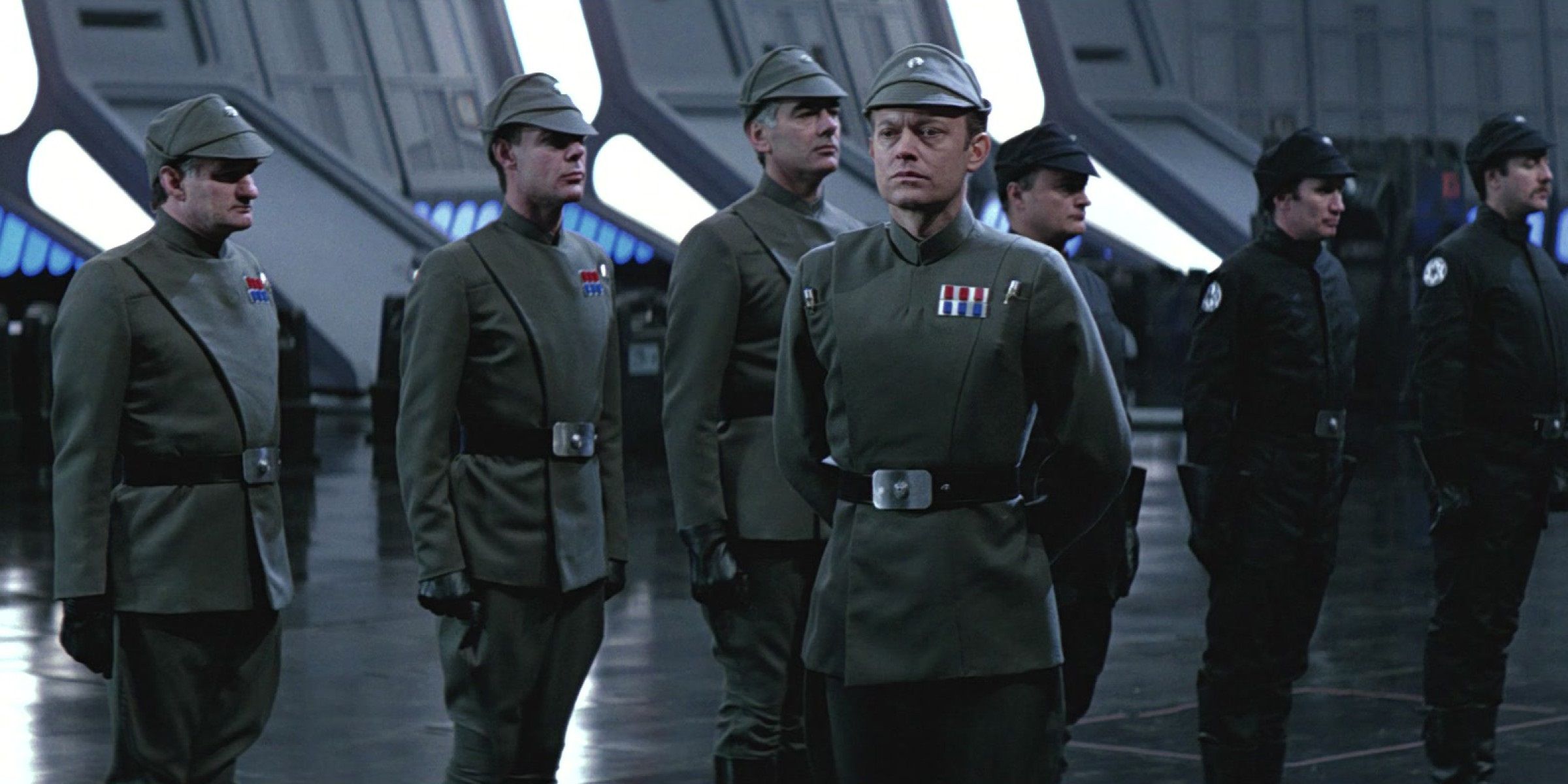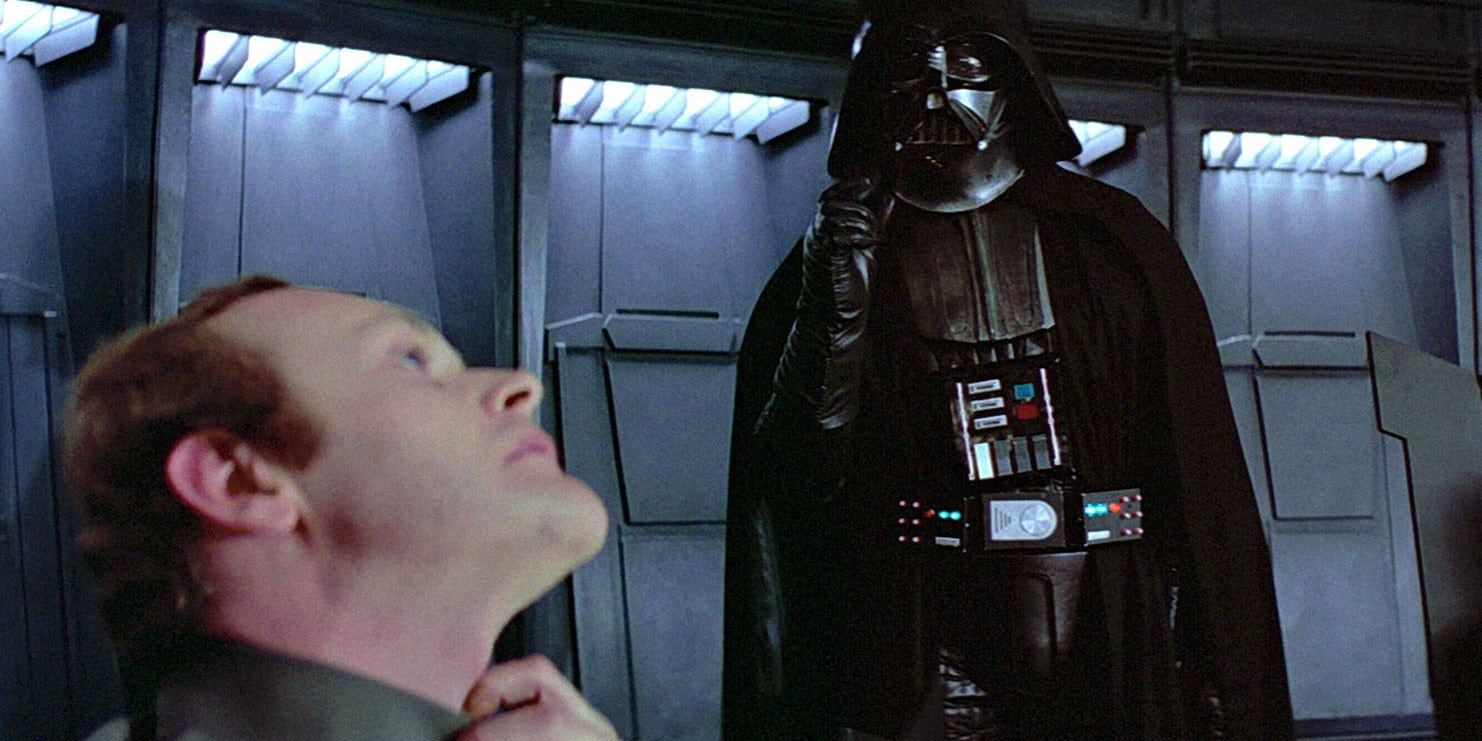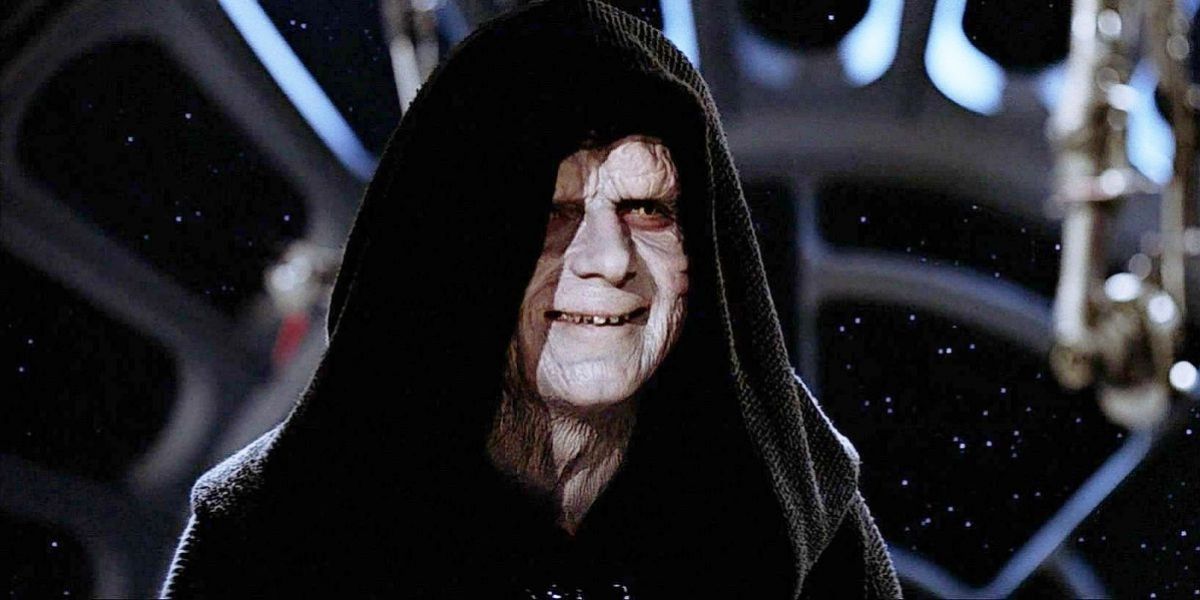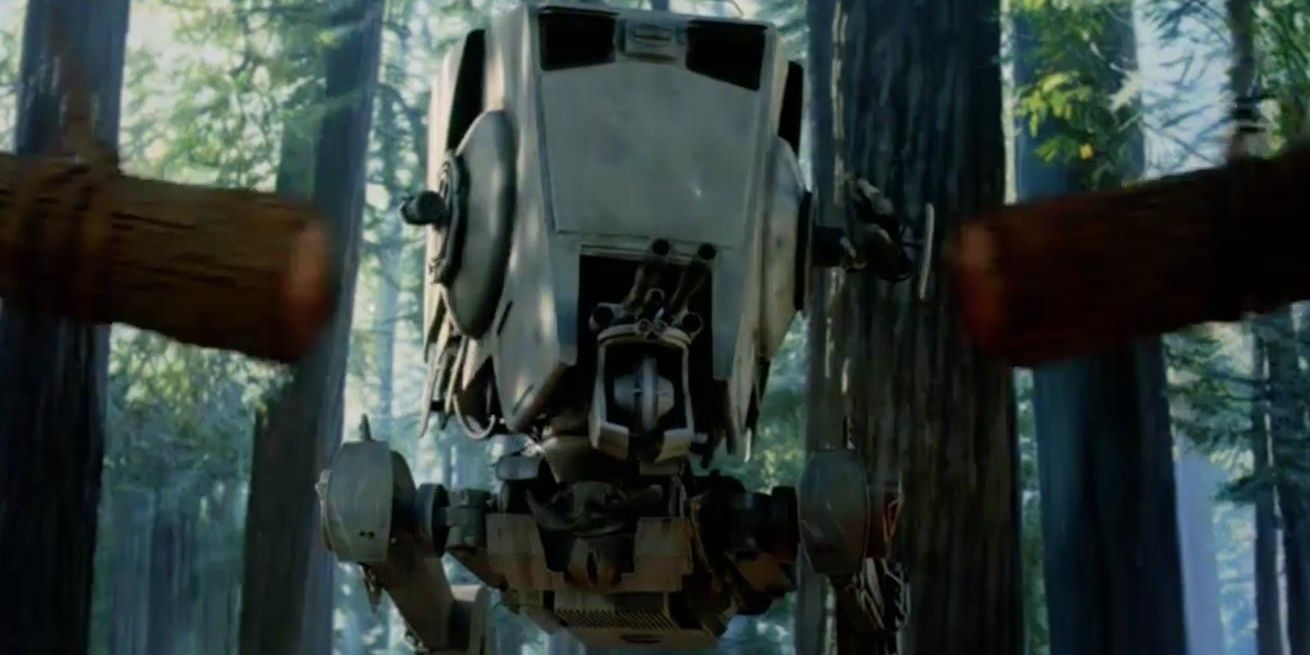It is not hard to see why the Galactic Empire of the original Star Wars trilogy is cast as the bad guys. They are a ruthless authoritarian regime built on a philosophy of power through domination and force. Any one of their long list of war crimes is a very good argument for why the Rebellion needs to put a stop to their cruelty. The Empire is a force to be reckoned with, for sure.
They came close to annihilating the rebels on multiple occasions, and they have access to weapons and technology not available to others. Their war machines range from tanks to literal planet killers, and they have no qualms about killing civilians on the suspicion of a Rebel presence. Despite their technological advancements and imposing weapons, the Empire still occasionally met its match.
The Rebels defeated them on multiple occasions, but sometimes the Empire, for all its talk of strength and superiority, managed to defeat itself. These moments could cripple the Imperial forces far worse than any Rebel assault, and would ultimately play a big part in their downfall in the Star Wars universe.
6 Tarkin's Ambition Cost The Empire Its Greatest Weapon
Grand Moff Tarkin was a dangerous man. Even before he became Grand Moff of the Empire, he was an aggressive Republic officer known for his authoritarian leanings. He was a big supporter of the change from Republic to Empire and went on to become one of its most powerful figures. His authority was so strong he was even able to give orders to Darth Vader himself.
But Tarkin's ruthlessness and ambition would, ironically, be his own undoing. And it cost the Empire. The Death Star was supposed to be the Empire's ultimate weapon - a mobile station capable of destroying entire planets seemed, at least to the Empire, like a powerful deterrent, and he was quick to jump on the idea.
As the Death Star's construction was completed, Tarkin's first course of action was to usurp command from director Orson Krennic, throwing him aside. But Krennic was starting to suspect his architect Galen Erso of sabotaging the weapon, to the point of conducting his own investigation through the Imperial Archives on Scarif.
When that coincided with a Rebel assault by Jyn Erso, Tarkin's "solution" was to fire on the archives, destroying every piece of data the Empire had on their superweapon...and leaving the last known copy of the Death Star plans in the Rebels' hands. His extreme response effectively prevented the Empire from finding the weakness intentionally placed by Galen, so it could be exploited by the Rebels. In doing so, he set in motion the Death Star's destruction and his demise.
5 Admiral Ozzel's Tactical Stupidity
Putting Admiral Ozzel in charge of anything, let alone Darth Vader's personal Star Destroyer, was a mistake in itself. The man was arrogant, overconfident, and unwilling to listen to anyone. He tended to overestimate his authority to the point of thinking he could talk back to Vader himself. Even other Imperial officers saw him as an incompetent buffoon. But he would really screw things up for the Empire when he led the assault on Hoth. His attempt at a "surprise attack" did exactly the opposite - confirming the suspicions of Rebels who were already anticipating an Imperial assault.
Although the Empire ultimately won at Hoth, their efforts were complicated by Ozzel's tactical failure. Because he unwittingly alerted them of the Empire's presence, the Rebel forces were able to prepare and evacuate the base. Darth Vader was not happy about this and made sure to put an end to Ozzel's blundering by way of force choke. Ozzel's more competent subordinate, Piett, was assigned to take his place. But the damage was already done. Ozzel's incompetence made it possible for the rebels to escape, regroup, and eventually gain the upper hand at Endor.
4 An Authoritarian System Comes With Problematic Assumptions
Like many power-hungry dictators, Palpatine failed to realize a fundamental flaw in an authoritarian system - it comes with the inherent assumption that the leader is perfect, always correct and that what they say cannot be challenged. Often this causes problems because the leader has the pressure of maintaining that image and hiding anything that could be considered a weakness, which could then call into question their position of authority.
Palpatine was no different, seeing himself as the ultimate Dark Lord who could not be stopped, when in fact he was only human and just as capable of making mistakes as anyone else. Everything that went wrong was the fault of someone beneath him, as far as he was concerned.
This behavior was also shared by many Imperial officers, especially in higher ranks. A mistake was a sign of weakness and needed to be hastily dealt with. The response for most was to either cover up the error, blame it on someone else, or scramble to rectify it. After all, the slightest error could result in a force choking from Vader. This produced a culture in which people, especially those in authority, were encouraged to prioritize their image over efficiency.
This has a multitude of problems. Not being able to offer or take feedback produced a sense of entitlement that one could simply demand anything and expect results from anyone beneath them, even if the order is impossible to carry out. But more frustratingly, not being able to acknowledge mistakes made it hard to learn from them - especially when the penalty was sometimes immediate execution.
3 Control Through Fear Has Limits
The Empire was fond of a mentality that fear was the ultimate means of control, a tactic that has been used by many dictators over the years. The theory behind it is simple - if the leader's subjects do not do as they are told, the leader threatens (usually violent) retaliation. As far as the idea is concerned, people will not resist if they are deterred by the threat of an aggressive response. This was part of the rationale behind the Death Star. As far as Tarkin understood, no sane person would ever defy his authority if it meant their planet being destroyed.
However, in practice fear alone is not an effective tool for maintaining order, something an authoritarian ruler often has trouble understanding. In contrast, where Tarkin demands unconditional respect from his subordinates, Leia earns the respect of her followers. Tarkin tries to scare the galaxy into compliance, but Leia does not need to do so because her supporters follow her willingly. Ultimately, soldiers who volunteer for a cause they believe in and follow a leader they respect are going to perform better than soldiers who are conscripted and driven by fear of being punished for failure.
2 Palpatine's "Unlimited Power" Prevented the Empire From Moving Forward
One of the biggest problems with the Empire's hierarchy was being run by a Sith Lord who was more concerned with maximizing his own power than actually running the galaxy. Palpatine craved only one thing - power, "unlimited power" as he famously stated. And he wanted to hold all of it, forever. All the Empire's power was concentrated in Palpatine, who had more or less absolute authority over everything. It seemed great for the Emperor, but it could impede the day-to-day operations of his subordinates.
This also meant the Emperor was not particularly concerned about the Empire's future if he wasn't in it. He had no real strategy to keep the Empire going in the event of his demise. There was no succession plan, and the contingencies he did have were focused more on keeping himself alive and in power than allowing the Empire to remain intact.
This made his death a huge blow to the Empire. When Palpatine was finally killed by Vader, there was no clear directive for who should take his place, or how to distribute his power. The resulting vacuum created perfect conditions to disorganize and divide the Imperial forces, hastening their downfall.
1 Underestimating Potential Enemies
The Empire was built on the mentality of "might makes right." The best way to dominate was to have bigger guns and bigger deterrents than the enemy. Both Death Stars are a perfect example of this idea in action. The problem with this mentality is it fuels a sense of superiority, and makes it easy to dismiss potential threats.
This is an easy mistake for an authoritarian regime to make, assuming their better weapons make defeat impossible. A threat that was underequipped or relying on methods they considered "primitive" was, therefore, an easy target. This has the downside of making it very easy to underestimate a potential enemy.
This mentality led to rebel victories on multiple occasions. But the Empire really shot itself in the foot when it set up the Death Star shield station on Endor, a forest moon occupied by creatures they could easily dismiss as "primitive." After all, Ewoks are tiny and their main weapons are spears and bows and arrows - surely they'd have no chance of standing up against Imperial guns and tanks, right? All it took was a few rebels to strike up an alliance and the Empire suddenly experienced what might have been its most humiliating defeat by largely "primitive" methods.

